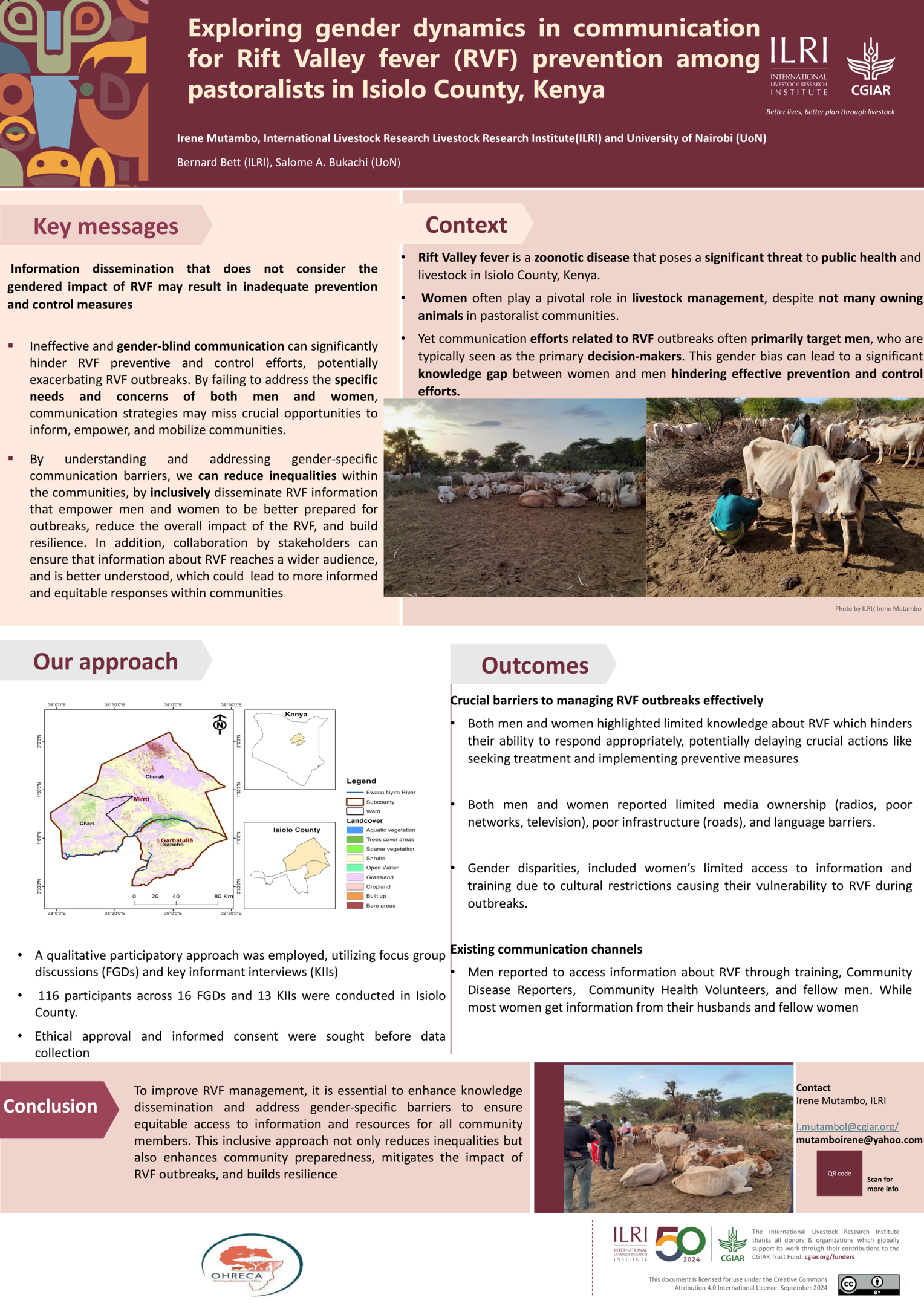
Description
Description
- Rift Valley Fever (RVF) poses a significant threat to public health and livestock in regions like Isiolo County, Kenya where the population mainly depends on livestock for food and livelihoods. While women often play a crucial role in livestock management, they are frequently overlooked in communication efforts related to RVF outbreaks. This gender bias can hinder effective prevention and control measures.
- Communication strategies that address the specific needs and concerns of both men and women, are essential to ensure that all members of the community have the knowledge and tools necessary to protect themselves and their livestock from RVF. In the long run, this can help to reduce the spread of the RVF and mitigate its impact on the community.
- Gender-inclusive communication can empower women to be active participants in RVF prevention and control efforts. If women are provided with relevant information and resources, including decision-making capabilities that enable them to take effective actions to protect themselves, their families, and livelihoods.
- Furthermore, gender-inclusive communication can foster greater community engagement and trust. If both men and women are involved in the decision-making process to build a stronger sense of ownership and responsibility among community members which can lead to more effective and sustainable RVF prevention and control strategies.
Comments
Add new comment